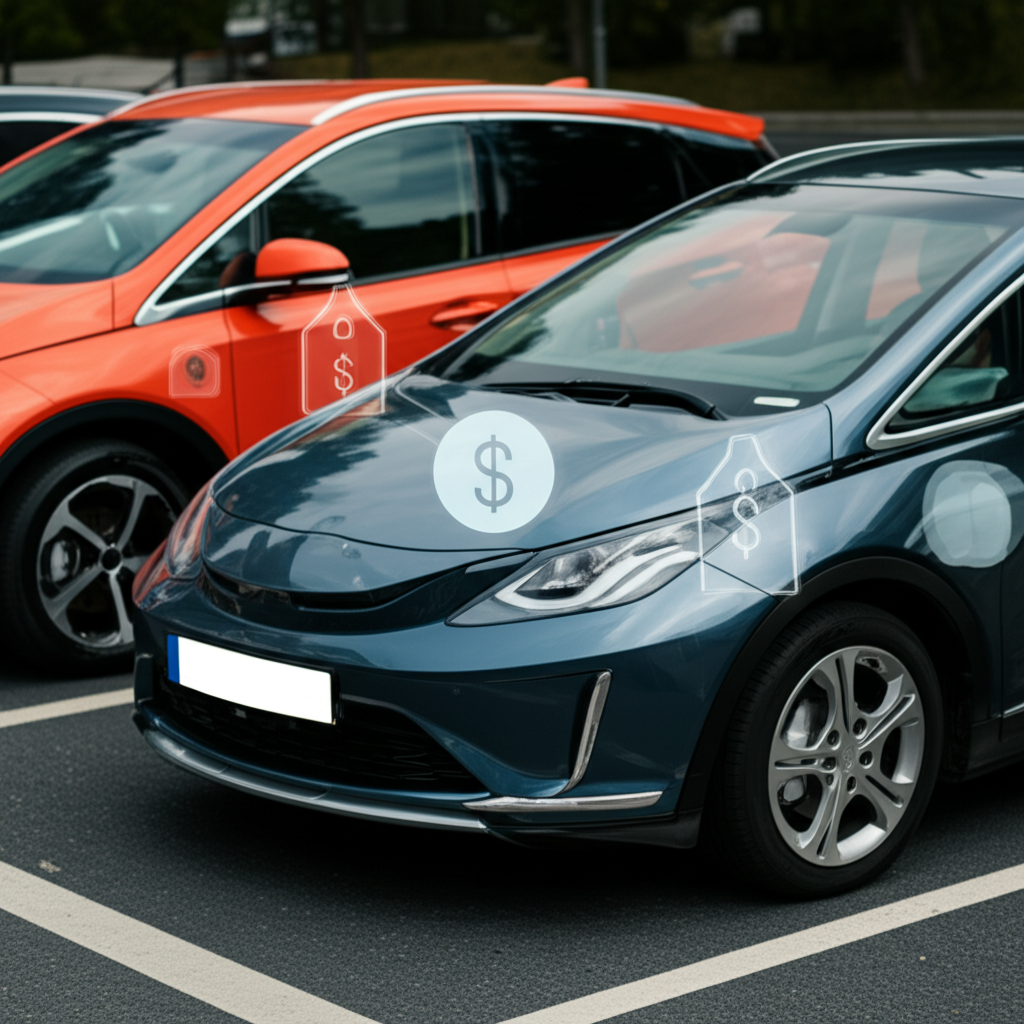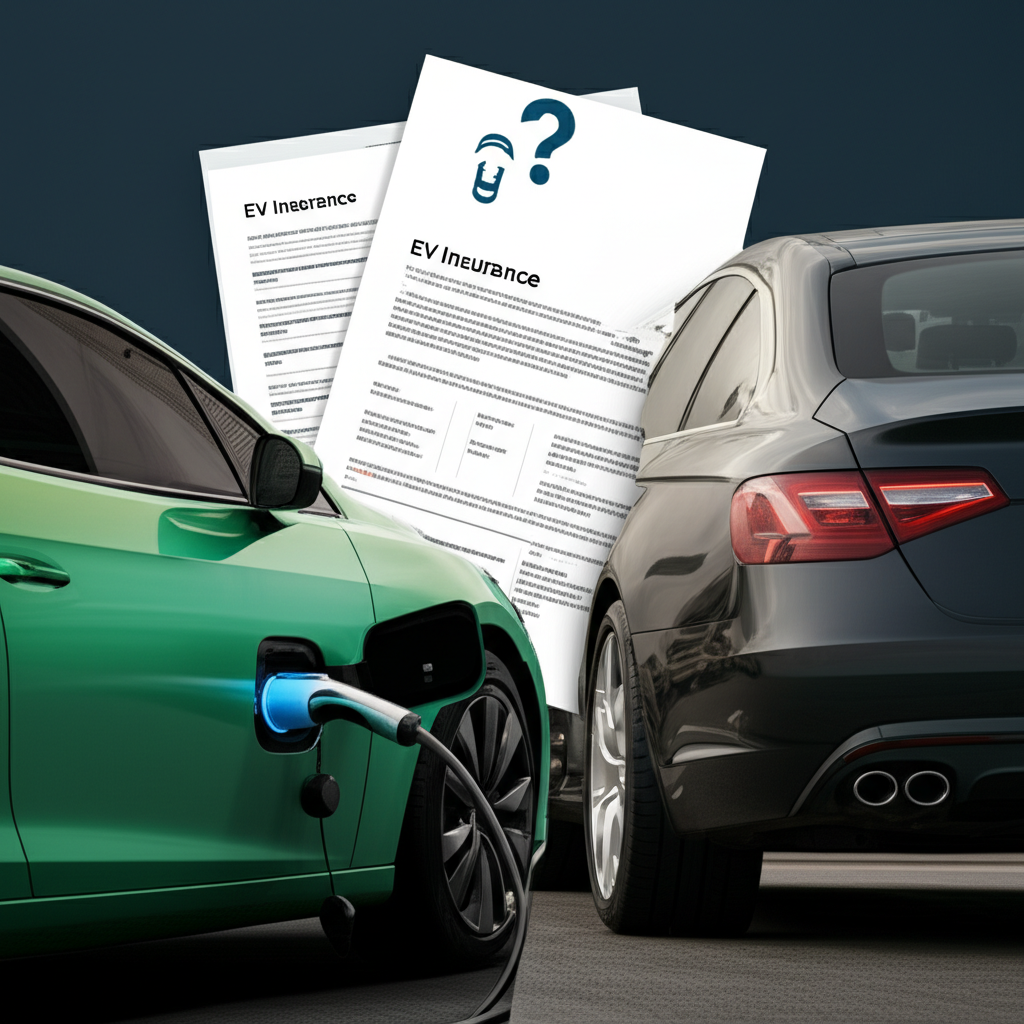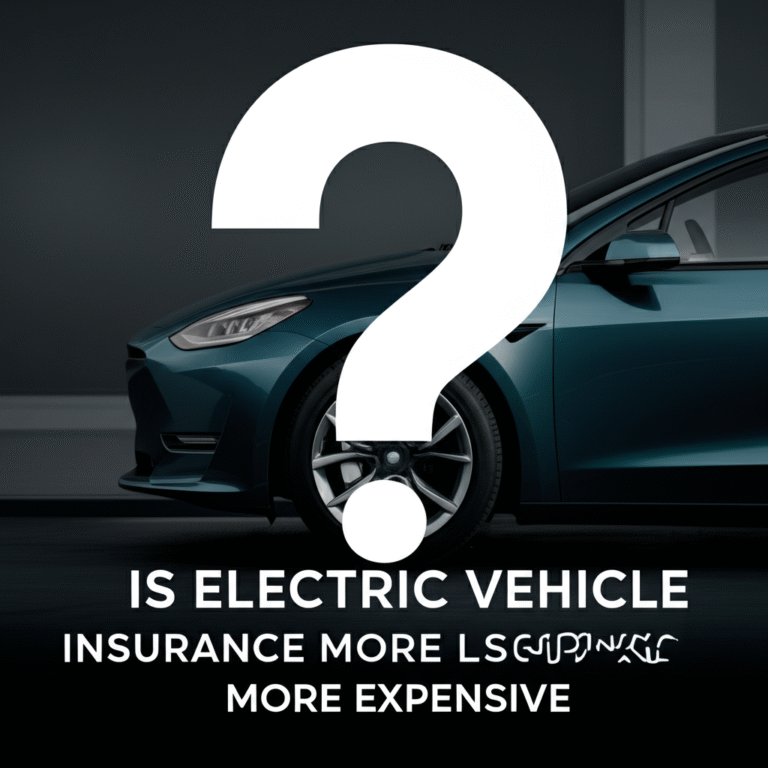Generally, EV insurance can be slightly more expensive than comparable gasoline-powered cars, but the difference is often less than people expect and can be offset by other savings. Factors like repair costs, technology, and safety features play a role.
Hey there, fellow DIYers and homeowners! So, you’re thinking about taking the plunge into the world of electric vehicles (EVs)? That’s awesome! It’s an exciting time with all the advancements in green technology. But before you drive off into the sunset, a common question pops up, and it’s a good one: “Is electric vehicle insurance more expensive?” It’s a worry many first-time EV buyers have, and it’s totally understandable. We’re here to break it down for you, nice and simple, so you can make an informed decision without feeling overwhelmed. Let’s get this covered!
Understanding EV Insurance Costs: What’s the Real Story?
It’s a question many people are asking as EVs become more popular: “Is electric vehicle insurance more expensive?” The short answer is, sometimes, yes, but it’s not a hard and fast rule, and the difference might surprise you. Think of it like choosing the right drill bit for a job – you need to understand the materials and the tools involved. With EVs, the cost of insurance can be influenced by several factors that are a bit different from your trusty gasoline car.
Let’s dive into why this perception exists and what truly impacts the premiums for these innovative vehicles. We’ll look at the technology, the repair landscape, and even how your driving habits can play a part.
Why the Perception of Higher EV Insurance?
Several reasons contribute to the idea that EV insurance is pricier. It’s not just about the car itself, but the whole ecosystem surrounding it.
- Higher Purchase Price: EVs, especially newer models, often have a higher upfront cost than their gasoline counterparts. Insurance premiums are frequently tied to the value of the vehicle, so a more expensive car generally means higher insurance costs.
- Repair Costs: The technology in EVs, particularly the battery and complex electronic systems, can be more expensive to repair or replace if damaged in an accident. Specialized technicians and parts can also contribute to higher labor costs.
- Battery Replacement: The battery is the heart of an EV, and it’s also one of the most expensive components. While batteries are designed to last a long time and often come with long warranties, a significant accident could necessitate a costly replacement, which insurers factor into their risk assessment.
- Limited Repair Network: Not every auto shop is equipped to handle EV repairs. A smaller network of specialized repair facilities can sometimes lead to higher labor rates or longer repair times, both of which can influence insurance pricing.
- Emerging Technology: As a relatively newer technology in the mainstream automotive market, insurers may be still gathering extensive data on repair patterns and long-term reliability for certain EV models. This can sometimes lead to higher initial premiums until more data is available.
Factors That Actually Influence Your EV Insurance Premium
While the points above can contribute to higher premiums, it’s crucial to remember that your individual circumstances are the biggest drivers of your car insurance cost. Here’s what insurers look at for EVs, just like for any other car:
- Your Driving Record: A clean driving record with no accidents or violations is the best way to keep any insurance premium down, whether you drive an EV or a gasoline car.
- Your Location: Where you live can significantly impact insurance rates due to factors like theft rates, accident frequency in the area, and local repair costs.
- Your Chosen Coverage: Opting for higher coverage limits, lower deductibles, or comprehensive/collision coverage will naturally increase your premium.
- The Specific EV Model: Some EV models are inherently more expensive to repair or have higher theft rates than others, which will affect their insurance costs. A luxury performance EV will likely cost more to insure than a more budget-friendly compact EV.
- Your Age and Experience: Younger, less experienced drivers typically pay more for insurance across all vehicle types.
- Annual Mileage: The more you drive, the higher your risk of being in an accident, which can lead to higher premiums.
Comparing EV Insurance vs. Gasoline Car Insurance: A Closer Look

Let’s put it into perspective. While EVs can be more expensive to insure, the gap isn’t always as vast as you might think. For many drivers, the cost difference is minimal, and sometimes, it’s even lower.
Here’s a table illustrating some common factors and how they might play out:
| Factor | Gasoline Cars | Electric Vehicles (EVs) | Notes |
|---|---|---|---|
| Purchase Price | Generally lower to moderate | Often higher, especially for newer models | Higher value = Potentially higher premium |
| Repair Costs | Varies by make/model, generally established | Can be higher due to specialized parts (battery, electronics) | Specialized labor and parts increase risk |
| Technology Complexity | Familiar components | Advanced electronics, battery systems | Newer tech can mean higher initial uncertainty for insurers |
| Safety Features | Varies widely | Often equipped with advanced safety and driver-assist systems | While good for safety, complex systems can be costly to repair |
| Battery Warranty | N/A (engine/transmission warranty) | Long warranties (e.g., 8 years/100,000 miles) often cover major battery issues | Reduces long-term risk for battery failure, but not accident damage |
| Common Parts Availability | Widely available | Can be more limited for certain EV components | Affects repair time and cost |
It’s important to get actual quotes for the specific EV models you are considering. Insurance rates are highly personalized.
When EV Insurance Might Actually Be Cheaper
Surprising, right? There are scenarios where an EV might have lower insurance costs:
- Safety Ratings: EVs often score very high in safety tests due to their design and advanced safety features. Insurers reward good safety. For example, many EVs are equipped with automatic emergency braking and lane-keeping assist systems from the factory, which can reduce the likelihood of accidents. The National Highway Traffic Safety Administration (NHTSA) provides safety ratings for many vehicles, including EVs, which insurers often consider.
- Lower Theft Rates: Some EVs have lower theft rates compared to certain popular gasoline-powered vehicles, which can lead to lower comprehensive insurance premiums.
- Usage-Based Discounts: Many insurers offer discounts for low mileage, and since many EV owners tend to drive less or have shorter commutes, they might qualify for these discounts.
- Newer Driver Assistance Technology: While costly to repair, advanced driver-assistance systems (ADAS) can also contribute to fewer accidents, potentially lowering claims over time.
Tips for Getting the Best EV Insurance Rates
Just like finding the right drill bit for metal or masonry, choosing the right insurance requires a bit of know-how. Here’s how you can keep your EV insurance costs in check:
- Shop Around: This is the golden rule for any insurance purchase. Get quotes from multiple insurance providers. Not all companies price EV insurance the same way. Some may have more experience with them than others.
- Bundle Your Policies: If you have homeowners insurance, renters insurance, or policies for other vehicles with the same company, you can often get a discount for bundling.
- Increase Your Deductible: Raising your deductible (the amount you pay out-of-pocket before insurance kicks in) will lower your premium. Just make sure you can afford the higher deductible if you need to file a claim.
-
Ask About Discounts:
- Good Driver Discount: The most common one!
- Low Mileage Discount: If you don’t drive much.
- Safety Feature Discount: Many EVs come with advanced safety tech.
- Anti-Theft Device Discount: Some EVs have robust built-in systems.
- Good Student Discount: If a young driver is on the policy and maintains good grades.
- Pay-Per-Mile Insurance: Some insurers offer this, which can be great for very low-mileage drivers.
- Maintain a Good Driving Record: As we mentioned, this is key. Avoid tickets and accidents.
- Consider an Older or Used EV: If the upfront cost is a major factor in insurance pricing, looking at a slightly older or used EV model can significantly reduce both the car’s price and its insurance premium.
- Research Specific Models: Before buying an EV, research its specific insurance costs. Some models are notoriously more expensive to insure than others due to repair costs or performance. Organizations like Insurance Information Institute (III) often provide insights into factors affecting EV insurance.
What About Maintenance and Repair?

When we talk about insurance, it’s also worth touching on what you can expect from EV ownership regarding maintenance and potential repairs. This often ties into insurance costs because higher repair costs mean higher potential payouts for insurers.
EV Maintenance vs. Gasoline Car Maintenance
One of the big selling points of EVs is their simpler mechanical nature:
- Fewer Moving Parts: EVs don’t have internal combustion engines, transmissions, exhaust systems, or oil filters. This means no oil changes, no spark plug replacements, and fewer fluid checks.
- Brake Wear: Regenerative braking, where the electric motor slows the car and recaptures energy, means the physical brake pads and rotors often last much longer than on gasoline cars.
- Tires: Due to the instant torque and often heavier weight (from the battery), EVs can sometimes wear tires slightly faster.
- Battery Health: While batteries are designed for longevity, they are the most critical component. Most manufacturers offer substantial warranties, typically 8 years or 100,000 miles, covering defects and significant degradation.
In terms of routine maintenance, EVs are generally cheaper and simpler. The U.S. Department of Energy provides excellent resources on vehicle maintenance, including comparisons for EVs.
EV Repairs: The Cost Factor
This is where the insurance discussion often gets tricky. While routine maintenance is simpler, specific repairs can be more expensive:
- Battery Replacement: Outside of warranty, a battery pack can cost tens of thousands of dollars. This is the biggest potential repair cost.
- Electric Motor and Power Electronics: While generally reliable, if these components fail, they can be expensive to replace.
- Body and Sensor Damage: EVs often have more integrated sensors for driver-assistance features, and these can be delicate and costly to repair or recalibrate after an accident.
- Specialized Technicians: Not all mechanics are trained to work on EVs, which can sometimes lead to higher labor costs due to the specialized skills required.
This is why insurers look closely at the cost of parts and labor for specific EV models when setting premiums. If a car is expensive to fix, the risk for the insurer is higher.
The Long-Term Savings of EVs
It’s easy to focus solely on insurance premiums, but remember the bigger picture! EVs offer significant savings in other areas that can more than offset slightly higher insurance costs:
- Fuel Savings: Electricity is typically much cheaper per mile than gasoline. This can save you hundreds or even thousands of dollars per year.
- Lower Maintenance Costs: As we discussed, fewer moving parts mean fewer trips to the mechanic and less money spent on routine maintenance like oil changes.
- Government Incentives: Many governments offer tax credits and rebates for purchasing EVs, which can directly reduce the upfront cost of the vehicle.
- Reduced Emissions: While not a direct financial saving, contributing to cleaner air has its own valuable rewards.
Frequently Asked Questions About EV Insurance
Here are some common questions people have about insuring their electric vehicles:
- Q1: Will my insurance premium automatically go up if I switch to an EV?
- Not necessarily. While some EVs can have higher premiums due to factors like purchase price and repair costs, it’s not a guarantee. Your individual driving record, location, and the specific EV model all play a significant role. Always get quotes for the exact vehicle you’re considering.
- Q2: Is it harder to find insurance for an EV?
- Generally, no. Major insurance companies are increasingly offering policies for EVs. However, if you live in a very rural area or own a niche EV model, you might have slightly fewer options compared to more common gasoline cars.
- Q3: Does the EV battery warranty affect my insurance?
- The manufacturer’s battery warranty covers defects and significant degradation of the battery itself. Your auto insurance covers damage from accidents or collisions. While the warranty reduces the risk of a costly battery replacement due to a manufacturing fault, it doesn’t cover damage caused by an accident, which is what your insurance would handle.
- Q4: Are there specific discounts for EV owners?
- Yes, you can often find discounts related to EVs. These might include discounts for low mileage, advanced safety features (which most EVs have), or even specific discounts from insurers who want to attract EV owners.
- Q5: Should I get comprehensive and collision coverage for my EV?
- Yes, especially if your EV is new or financed. Comprehensive and collision coverage will protect your vehicle against damage from accidents, theft, vandalism, and other events. Given the potential repair costs for EVs, having this coverage is highly recommended.
- Q6: How do I compare EV insurance quotes effectively?
- When comparing quotes, make sure you are comparing the exact same coverage levels (deductibles, liability limits, comprehensive/collision deductibles) for each vehicle. Also, pay attention to any specific EV-related discounts being offered.
- Q7: Will my insurance cost decrease as EV technology becomes more common?
- As the technology matures and more data becomes available to insurers, and as more repair shops are equipped for EVs, it’s likely that insurance costs for EVs will stabilize or potentially decrease over time. Increased competition among insurers specializing in EVs will also play a role.
Making the Switch: It’s More Than Just Insurance
Deciding to go electric is a big step, and understanding the nuances of EV insurance is a vital part of that decision. While it’s true that “Is electric vehicle insurance more expensive?” is a valid question, the answer isn’t a simple yes or no.
The cost of insuring an EV is a complex equation influenced by the car’s value, its repair costs, and, most importantly, your personal circumstances. However, the potential savings on fuel and maintenance, coupled with the environmental benefits and the sheer enjoyment of driving an EV, often make it a worthwhile consideration.
So, take a deep breath, do your research, get those quotes, and remember that a little bit of comparison shopping can go a long way. Just like choosing the right drill bit makes your DIY project a success, choosing the right insurance plan will give you peace of mind as you embrace the future of driving. Happy motoring!


